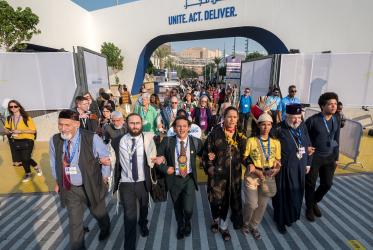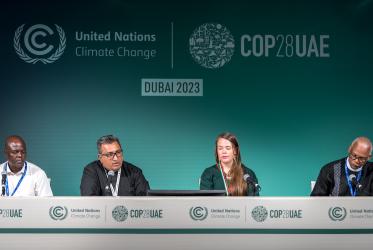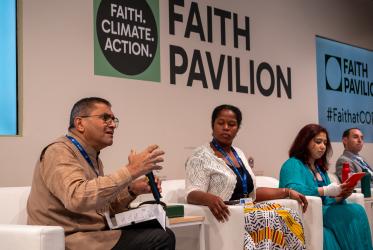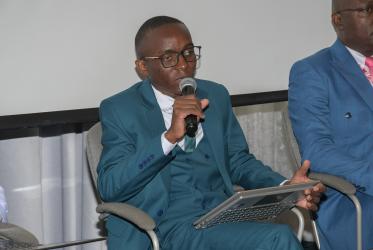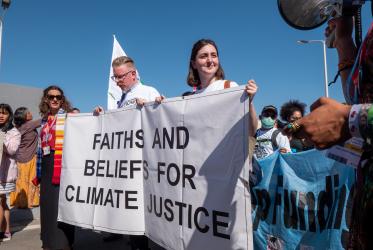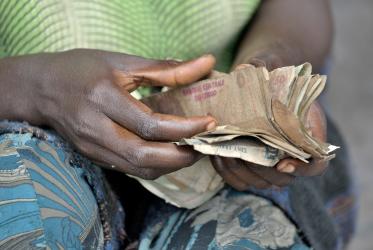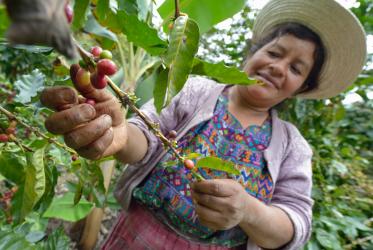Displaying 1 - 20 of 355
What can churches do to prevent modern slavery?
22 February 2024
WCC and partners to host seminar in Assisi on Feast of Creation
21 February 2024
WCC submits comments on draft UN “Pact for the Future”
12 February 2024
WCC to share key insights at World Social Forum
09 February 2024
Ellyanne Chlystun-Githae Wanjiku to COP28: “listen more to children”
13 December 2023
Faith communities advocate for a just transition at COP28 side event
09 December 2023
WCC co-hosts webinar on climate emergency and faith responses
25 October 2023







